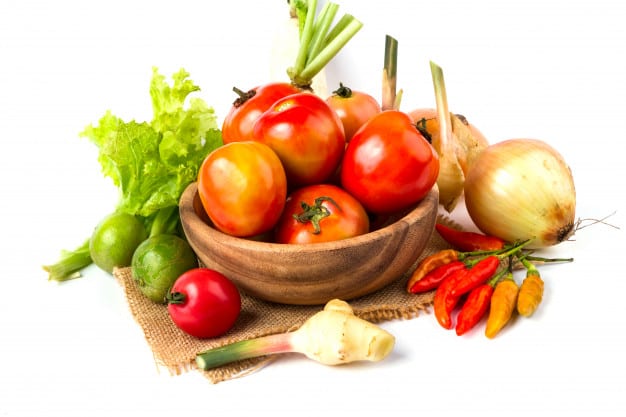11 Tips to bolster your immune system against illness
As the world is held in the grip of the corona virus SARS-CoV-2, our immune systems can use all the help we can give them. This article contains 11 tips to bolster your immune system to prevent and recover from illness.
None of these tips have been proven to protect against coronavirus disease 2019 (COVID-19), but they can help against the flu, fever and other respiratory conditions, so they might help and this is a good checklist to go through every winter anyway.
Plus, if you have a cough these days…

Common sense disclaimer: While several medical professionals have looked over these tips (they’re from my online PT Course’s health science module), this article does not constitute official medical advice. If you already have a serious condition or pathology, consult with a medical professional for your specific case.
1. To train or not to train
The first question on any hardcore trainee’s mind when they fall ill: should I keep training? A well-accepted guideline is to keep exercising if you feel able to and you have no symptoms below the throat. Don’t train if you have a fever or muscle aches or you may infect others.
While exercise acutely suppresses or at least modulates the immune system as part of the stress-response, this effect diminishes almost completely with training experience and, more importantly, outside of extreme endurance training and elite athletics, the changes in these biomarkers only poorly correlate with actual symptomatology, morbidity and mortality. In other words, it doesn’t appear you acutely get sicker from exercise you’re accustomed to, especially not strength training, which is relatively mild on the immune system compared to long-duration endurance training. Some recent animal research even found that continuing to exercise after an acute infection is beneficial for the immune system.
Since regular exercise has been shown to protect against disease and inflammation, continuing to train with the above guideline shouldn’t pose any significant health risk and may even speed up recovery. Just be sure to implement reactive deloads as needed.
2. Consume a healthy diet with enough zinc and vitamin C
Newsflash: a healthy diet keeps you healthy. While everyone knows this, it’s worth ensuring you consume enough vitamin C [2, 3] zinc [2, 3, 4] and vitamin D [2, 3]. These micronutrients have been found in multiple studies to protect against the common cold virus, influenza and other respiratory conditions. They directly support the functioning of your immune system.
The benefits aren’t magical, not all studies find benefits and there’s no clear dose-response, so I don’t necessarily recommend going out of your way to purchase supplements. Preventing deficiencies is probably most important, though some evidence suggests high doses of zinc and vitamin C may shorten the duration of illness, so it’s possible higher intakes are beneficial when you’re ill.
Zinc might be worth supplementing though, specifically in lozenge form. Zinc seems to be particularly effective to reduce the duration of common cold virus infections when it comes into direct contact with your throat and nose to fight the virus. It may also trigger nausea and local irritation this way though.
In general, you should be in good shape if you consume a healthy diet.
Good sources of zinc include red meat (beef, pork or lamb, organ meat included), chicken liver or kidney, or shellfish (oysters, crab or lobster). Vegetarians should consider supplementing zinc if they’re not tracking their intake, as it’s hard to consume enough zinc for an exercising individual without meat or shellfish.
Good sources of vitamin C include fruits (citrus fruits, kiwi, strawberries or large amounts of tomato) and vegetables (peppers, broccoli, Brussels sprouts or large amounts of potato).
If you don’t get regular sun exposure, you’ll likely benefit from supplementing at least 2000 IUs per day of vitamin D, as there’s very little vitamin D in food. Your skin produces it in response to ultraviolet radiation.

3. Consider consuming more garlic
One particular food that can bolster your immune system is garlic. Consuming the equivalent of 2 or more cloves of garlic a day boosts overall immune function while speeding up recovery from the flu and reducing the severity of symptoms.
Unfortunately, with this improved health may come a not so healthy smell. Eating garlic makes your body produce high amounts of hydrogen sulfide, which in turn makes your breath and sometimes sweat smell of garlic.
A possible alternative to consuming fresh garlic is supplementing aged garlic extract. This is often marketed as ‘odorless’, but if you’ve consumed a lot of it, you – or rather the people around you – will know that’s overstating things. Considering the smell and that there appear to be minimal benefits of increasing the dosage above 480 mg garlic extract and more digestive side-effects, so you may want to limit your intake to ~500 mg of garlic extract per day.
You should consume garlic extract in the form of tablets without enteric coating, as tablets have higher bioavailability than capsules and enteric coating decreases allicin bioavailability, ironically.
It’s probably best to take the garlic extract with a meal, as the meal will decrease stomach acidity (higher pH) and your stomach acid may otherwise inhibit alliinase, which is needed to form allicin from alliin. If your supplement does have enteric coating, consume it with a low protein, easily digestible meal, as delayed gastric emptying will expose the tablets to excessive stomach acid, which inhibits alliinase. The following products – with which I have no affiliation – have been validated in research to have high bioavailability:
- GNC-1000, AKA Natural Brand Odorless Garlic 1000 from General Nutrition Corp (GNC).
- Kwai forte 300 from Klosterfrau
- Odor Free Garlic from Nature’s Bounty
- Kwai from Lichtwer Pharma
- Garlicin from Nature’s Way Products also performs well despite having enteric coating, but not being able to consume it optimally with high protein meals can be inconvenient for strength trainees.
4. Sleep enough
Sleep deprivation impairs many aspects of our immune system [2] and is significantly associated with increased risk of respiratory infection. Most people need ~7.5 hours of sleep per night (5 full sleep cycles) to maintain optimal immune functioning.
5. Saline nasal irrigation
If you have a stuffy nose, saline nasal irrigation can be an effective do-it-yourself treatment at home. It’s what it sounds like: snorting salt water. Not very sexy, but it can provide significant relief instantly. Nasal saline irrigation AKA salt water snorting literally cleans your nasal tract and sinuses. Unsurprisingly then, it is particularly effective against sinus infections.
Fancier irrigation tools like Neti Pots and nasal sprays achieve the same thing as snorting salt water, so they may be more comfortable, but you can just dilute table salt in a glass of clean water and snort it until you feel it in your throat (but don’t swallow the salt!).
The salt solution should be highly saturated for it to be effectively antiseptic.
If your tap water isn’t of very high quality, it’s safest to boil the water first. Make sure to let the water cool off before you snort it. Lukewarm water is also less uncomfortable to snort than cold water and the salt will dissolve faster in warmer water.
As a heads-up, snorting salty water can hurt quite a bit. If it does, that’s a sign you likely indeed have an infection.
If the infection and pain is in your throat (i.e. you have a sore throat), gargling the salt water may be effective as well. Again, don’t swallow the salty water. Rinse your mouth with regular, clean water afterwards.

6. Wash your hands regularly
While it’s debatable if always living in very sterile conditions is the best for long-term immune functioning, there is no doubt that regularly washing your hands and maintaining good hygiene is effective in the short term to ward off respiratory viruses. There’s little evidence that fancier hand sanitizers are any more effective than good old simple soap, so there’s no need to stock up on a year’s worth of hand sanitizer. There’s also a limit to what you can achieve with handwashing, as many viruses are transmitted by air, including corona, so there’s no need to wash your hands every time you touched anything. It’s advisable to wash your hands after each workout though.

7. To bulk or to fast?
Many of my strength training clients ask me if they need to bulk when they’re ill to speed up recovery. Recovery from workouts and from illness are both mediated by the immune system, but they’re very different processes. Muscle recovery is primarily a local process reliant on tissue remodeling, whereas recovering from illness is a systemic process reliant on eliminating pathogen that’s generally not rate limited by energy availability. Fasting upregulates some immune functions, so if you aren’t hungry, you generally don’t need to force yourself to eat [2].
However, as we touched on earlier, an abundant intake of nutrients can also aid our immune system and speed up recovery from the common cold. So when should we eat more and when should we eat less?
The traditional advice to ‘starve a fever, feed a cold’ seems to be supported by science. This generally occurs naturally as you aren’t hungry when you have a fever. However, you probably do want to try to consume your regular amount of protein to avoid excessive lean body mass loss. Consuming vitamin C, garlic and zinc may still help as well.
8. Broth it
If you have an upper respiratory tract infection, another way you can speed up recovery is by drinking (bone) broth. This traditional remedy literally opens up the upper respiratory tract and seems to function as an anti-inflammatory aid to your immune system.
Bone broth is also a great way to add flavor to soups. Try it in this 3-minute tomato soup or this broccoli soup that doesn’t suck for surprisingly tasty nutrient bombs.
9. Reconsider painkillers
In some situations, taking antipyretics (‘fever reducers’) like paracetamol may do more harm than good [2, 3]. Fever is an ancient defense mechanism that prevents the spread of viruses like the flu, as the virus cannot replicate well above 37° C. Suppressing your fever can thus delay your recovery, though paracetamol does seem beneficial for your lungs and it can of course be effective to make you feel better.
Similarly, non-steroidal anti-inflammatory drugs (NSAIDs) can suppress your natural healing process to the flu. Paracetamol is thus generally preferable over NSAIDs if you need a painkiller. However, NSAIDs do seem to benefit your lungs, so for some conditions they may be warranted.
Ideally, always consult with a medical professional before taking any painkillers. If your fever’s really bad and causing other symptoms, it’s probably worth taking paracetemol, but it’s unwise to pop a ton of painkillers at the first sign of any temperature elevation.
10. The anti-diarrhea diet
If you have an upset stomach or diarrhea, you probably want to avoid consuming a lot of fiber, as this can have laxative effects.
Definitely avoid consuming caffeine, including that in coffee, since it acutely increases distal colon motility, sort of like a one-time laxative.
The best foods to consume when you have an upset stomach are generally bland, low-FODMAP foods that are easy to digest. The following foods are good to consider:
- Bone broth soup
- Cantaloupe and honeydew melons
- Potatoes and yams (all kinds)
- Plantains and bananas
- Pasteurized yogurt, cottage cheese, quark and other white cheeses (if dairy tolerant)
- Protein powders
- Poultry
- Meat (debatable but anecdotally well-tolerated)
- White fish
If you’re nauseous or vomiting, consuming ginger can help [2].
11. Stock up on toilet paper
Completely unbeknownst to the scientific community until recently, surrounding yourself with an abundant supply of toilet paper has potent anti-pyretic, anti-bacterial and anti-septic effects. A study from the Journal of Mass Hysteria (2020) indicates toilet paper radiates anti-corona waves. When you have over 100 rolls in your house, you become immune to corona.

Ok, that last tip is a joke, but the other tips are serious. Stay healthy!
 Want more content like this?
Want more content like this?
Then get our free mini-course on muscle building, fat loss and strength.
By filling in your details you consent with our privacy policy and the way we handle your personal data.
